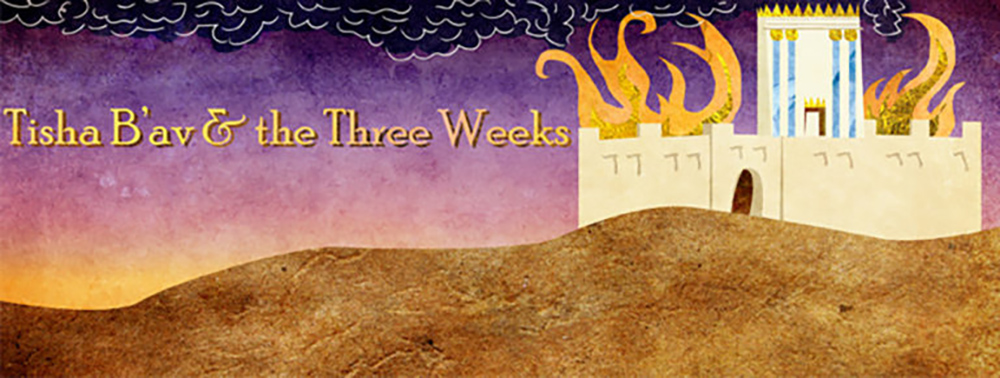By: Rabbi Osher Jungreis
PARSHAS DEVARIM–ETERNAL LOVE
Is it possible for a person to really cleanse himself and start life anew?
And here too, the prophet assures us, “Let us reason together. If your sins be red as scarlet, I will make them white as snow” is the promise of G-d. In these prophecies we can discover the unconditional, eternal love of our Heavenly Father. Even as He instructs His prophet to admonish us, to rebuke us for our betrayal, in the same breath He also shows us how to return to Him, and He assures us of His total forgiveness. How can any of us resist such an offer?
Let this Shabbos Chazon, which ushers in Tisha B’Av, the most tragic day in the Jewish calendar year, the day when all our sins were visited upon us; the day when both Temples were destroyed and Jerusalem was razed; the day when all the major calamities that befell us throughout the centuries occurred – let that day once again become a Yom Tov” in which we are reunited with our G-d and rediscover our Divine calling. Perhaps it is because of this that this saddest Shabbos in our calendar year is called Shabbos Chazon which means “The Shabbat of Vision”, for even in the midst of our darkness, our vision of Jerusalem and our Temple rebuilt is never lost.
This week, we commence the fifth Book of the Torah – Devarim (Deuteronomy) This fifth Book is also called Mishna Torah – A Review of the Torah. Prior to his death, Moshe Rabbenu reviews the entire Torah and admonishes the nation. We learn from Moshe, the master teacher, how to rebuke without alienating and offending. We live in a culture that is not accepting of criticism. “People just don’t want to hear it.” The motto is “mind your own business, don’t interfere”, so even parents have refrained from voicing their criticism. There is no one to tell it as it is, and the damage is evident everywhere. Moshe teaches us that if you truly love someone, then admonishment is “a must”, but the words have to be couched in love. This teaching may be seen throughout our rabbinic literature which instructs those who would criticize to “push away with the left hand and simultaneously draw near with the right.”
But perhaps what is most telling is that even as Moshe recounts the names of all the places where the Jewish people angered G-d during their forty years of sojourning, he demonstrated to them the extent of G-d`s great love, for despite their rebelliousness, the Almighty always forgave them and the people flourished.“HaShem your G-d has multiplied you and behold, you are like the stars of heaven in abundance”. (Deut. 1:10)
Herein lies another lesson–we should never feel that, because of our sins, we have so distanced ourselves from G-d that we can no longer come back to Him. G-d is our loving compassionate Father, and is waiting for all of us to return to Him. Nevertheless, we dare not abuse this love. Never should we rationalize that it’s okay to sin, because G-d will forgive. Nor should we feel that we are doomed because of past mistakes. If our repentance is sincere, G-d will always embrace us and we will merit seeing our Temple in Jerusalem rebuilt in our own days. “He who mourns for Jerusalem will be there to rejoice in her”





